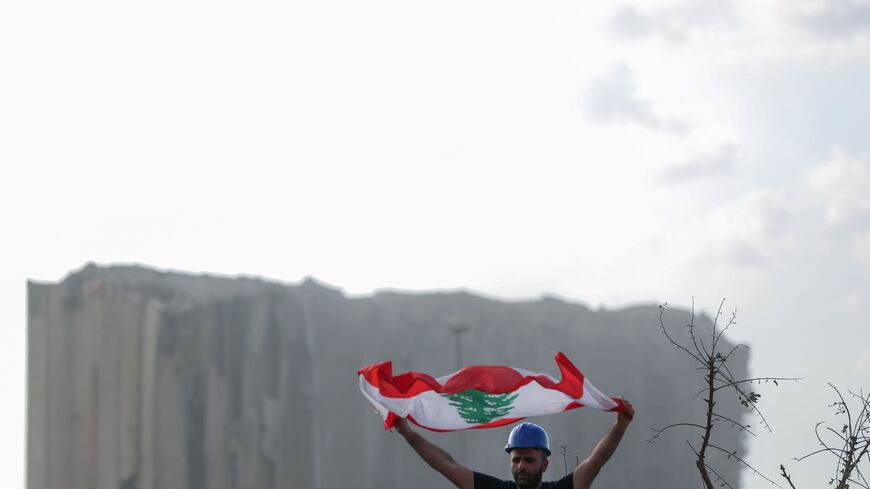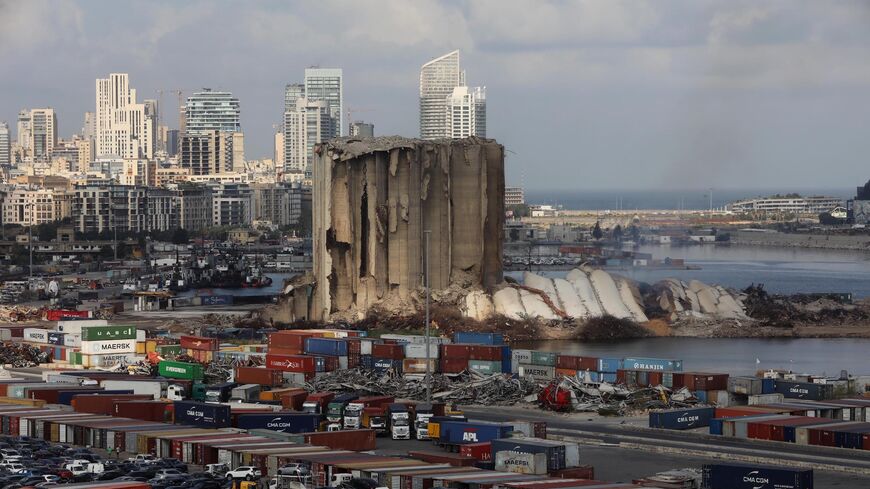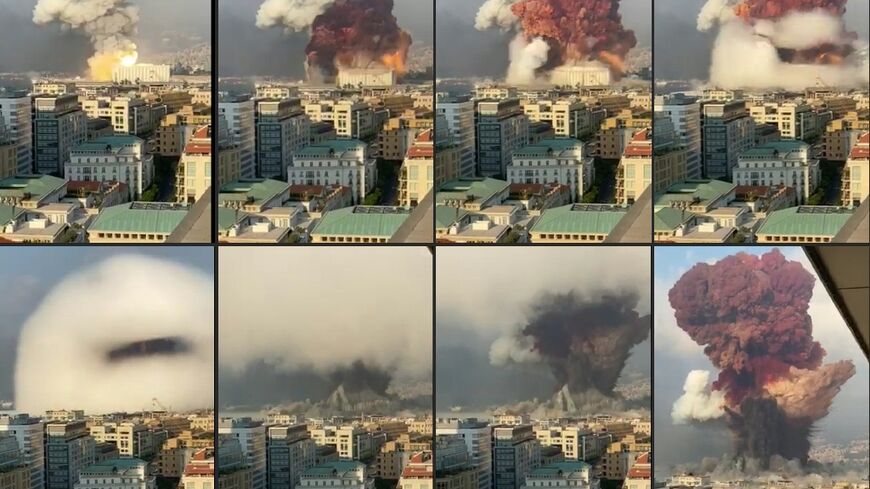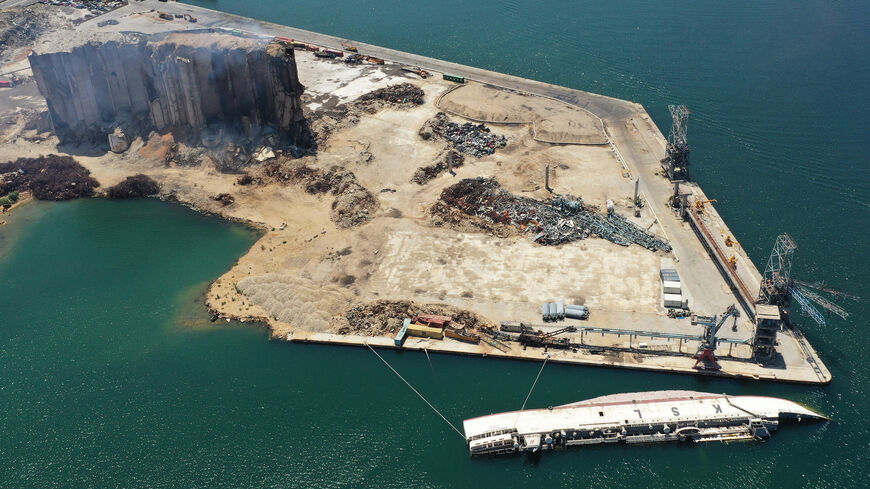5 years after Lebanon's port explosion: Can Beirut find accountability?
Not one official has been held accountable five years after the deadly port blast that killed over 220 people and destroyed much of Beirut.
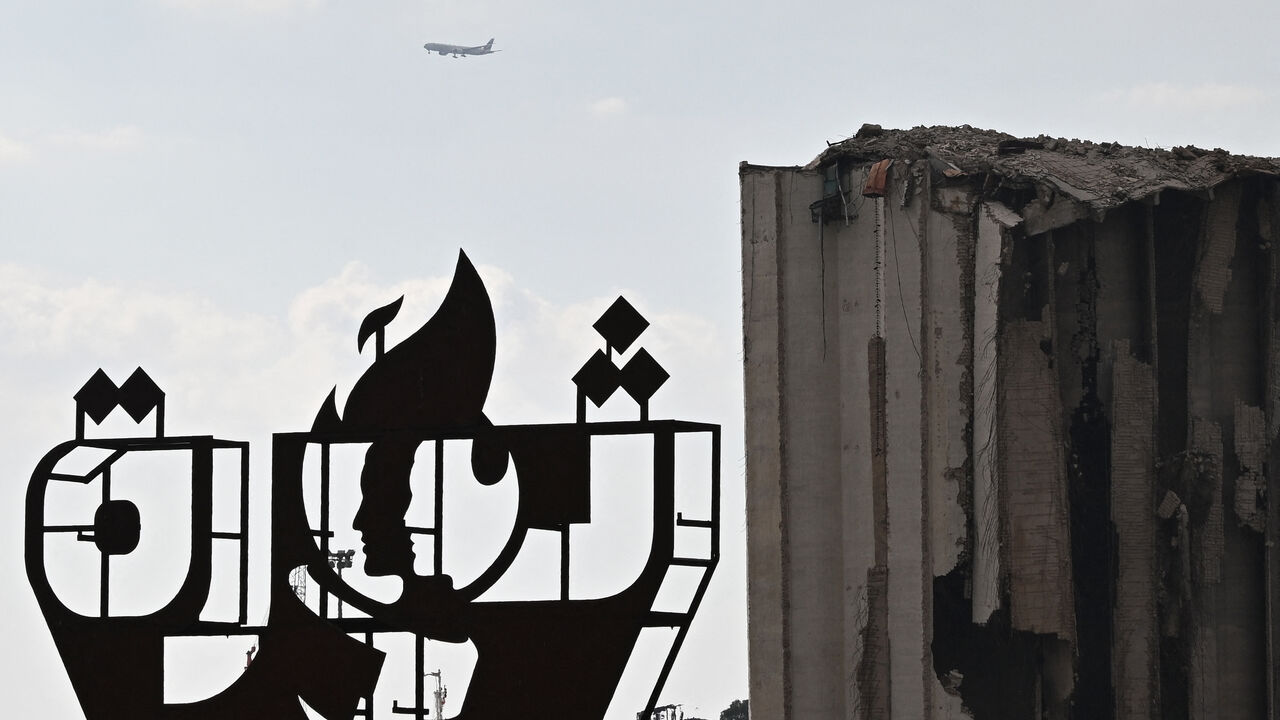
BEIRUT — On Monday, Lebanon marked the fifth anniversary of the deadly port explosion that rocked Beirut and its surrounding areas in August 2020, as the investigation into the blast remains stalled despite ongoing public pressure.
The Lebanese government declared Monday a national day of mourning, and flags were lowered to half-staff on all administrative buildings, public institutions and municipal buildings, which were also closed.
The families of the victims marched in two processions from Martyrs’ Square in Beirut and from the Beirut Fire Brigade in the Karantina neighborhood to demand accountability and justice. The two groups arrived at the entrance to the Port of Beirut late on Monday afternoon, with the participation of several ministers, parliament members and officials, including Justice Minister Adel Nassar, and Health Minister Rakan Nassereddine, who is close to Hezbollah.
Speaking to local media while marching toward the port, Nassereddine said Hezbollah and its allies support a transparent judicial process, away from any politicization.
Over the past few years, several officials linked to the Iran-backed Hezbollah and its ally, the Amal party, have been summoned and charged in connection with the port explosion, due to alleged negligence in the storage of ammonium nitrate at one of the port’s warehouses, which caused the explosion. But most of them, denying any wrongdoing, have refused to appear at their hearings and accused the judges leading the cases of bias.
Meanwhile, President Joseph Aoun vowed on Monday to deliver justice for the victims of the port explosion. “The Lebanese state, with all its institutions, is committed to uncovering the whole truth, regardless of the obstacles and regardless of the positions held. Justice knows no exceptions, and the law applies to everyone without discrimination,” Aoun said in a statement marking the fifth anniversary of the blast.
“Justice will not die, and accountability will inevitably come,” he continued, vowing to “continue to pressure all relevant authorities to bring all those responsible for the crime to justice, regardless of their positions or affiliations.”
On Sunday, Prime Minister Nawaf Salam inaugurated "Aug. 4 Victims Street" at the entrance to the port. Standing among the victims’ relatives and holding back tears, Salam said, "Revealing the truth and holding those responsible for the explosion accountable is a national issue.”
“The Aug. 4 explosion was not just a humanitarian catastrophe but a shocking moment in which trust between citizens and the state was tested,” he added.
Background
In the early evening of Aug. 4, 2020, a massive explosion sent a mushroom-shaped cloud towering over Beirut. Over 220 people were killed and 6,000 others injured in the blast, which also destroyed large parts of the city — leveling buildings near the port and shattering windows and infrastructure across the area. Entire neighborhoods were reduced to rubble, leaving more than 300,000 people homeless.
At the time, the World Bank estimated that the explosion caused between $3.8 billion and $4.6 billion in damage, with the housing and culture sectors most affected.
Experts say it was one of the world’s largest non-nuclear explosions. The shockwaves could be felt across the country and even reached Cyprus, about 250 kilometers (155 miles) from Lebanon.
Scenes of devastation began to emerge after the explosion, as bloodied residents wandered through clouds of dust and debris, confused about what had happened. In the hours that followed, the cause of the blast began to surface: A fire had broken out at a warehouse in the port where nearly 3,000 tons of ammonium nitrate — a highly explosive chemical — had been improperly stored since 2014.
LATEST: A massive explosion at Lebanon’s main port rocked the capital Beirut and its suburbs, injuring dozens of people and damaging many buildings https://t.co/aV96VgeHWH pic.twitter.com/TYvFrjr7NX
— Bloomberg Middle East (@middleeast) August 4, 2020
The explosion occurred at a time when the country was — and still is — reeling from a devastating economic crisis. In October 2019, massive nationwide protests erupted against the entrenched political elite that has ruled the country since the end of the civil war (1975-1990), amid worsening conditions and endemic corruption.
Reports that several officials and politicians were aware of the chemical stockpile at the port — despite its risks — further fueled public anger.
The blast came to symbolize Lebanon’s deeply rooted dysfunction and systemic corruption. Independent investigations and media reports — including those from Human Rights Watch and The New York Times — have pointed to widespread negligence and the alleged misuse of the port by powerful groups, including Hezbollah, which is believed to have used the site to smuggle goods.
Justice delayed
The president at that time, Michel Aoun, promised a swift and transparent investigation into the blast. Yet five years later, no one has been held accountable.
The investigation was quickly politicized. The first judge assigned to the case, Fadi Sawwan, was removed in February 2021 after he sought to question several former ministers, including Amal members of parliament Ali Hassan Khalil, who was finance minister at the time of the explosion, and Ghazi Zeaiter, the former minister of public works back then.
Judge Tarek Bitar then took over the investigation. But it wasn’t long before he too faced calls for his removal — primarily from the Iran-backed Hezbollah group and its ally, the Amal party — which accused him of bias. Bitar had summoned former ministers, including Hezbollah allies, on charges of intentional killing and negligence.
In December 2021, Judge Tarek Bitar suspended the probe amid political pressure and reports of threats. He resumed his work in January 2023, charging eight new suspects — including the then-head of General Security, Abbas Ibrahim, and former army commander Jean Kahwaji — in connection with the blast.
The charges were not made public. Shortly after, the country’s general prosecutor at the time, Ghassan Oueidat, ordered the release of the suspects, accusing Bitar of overstepping his powers and barring the judicial police from cooperating with him. Despite public outrage, the investigation was suspended that year.
A glimmer of hope returned after the election of President Joseph Aoun in January, ending a two-year presidential vacuum that had paralyzed nearly all of the country’s institutions. Optimism was further fueled by the waning influence of Hezbollah, which had suffered a severe blow during its 13-month conflict with Israel.
In light of these developments, Bitar resumed the investigation in mid-January, filing charges against 10 people — including Ibrahim, Kahwaji, former State Security Director General Tony Saliba, several customs officials and port employees.
He subsequently summoned several senior political and security officials to appear before him in July, after the ban on judicial police cooperation was lifted in March by Oueidat’s successor, Jamal Hajjar.
While many complied with the summons — including Ibrahim, and Hassan Diab, the prime minister at the time of the explosion, who were interrogated by Bitar in April — Zeaiter refused to appear at his scheduled July 4 hearing, instead sending his lawyer to represent him. The parliamentarian also failed to attend a second hearing on July 18.
Likewise, Oueidat refused to appear at his scheduled hearing on July 11.
Yet despite the renewed momentum, an indictment is unlikely before the end of the year, according to four judicial officials and two security officials who spoke to The Associated Press on Monday.
The officials said Bitar is still awaiting a fourth and final report from France, which launched its own investigation into the blast, given that several European citizens were among the victims. He also plans to question 15 more witnesses before concluding his findings.
With accountability still appearing to be far-fetched, several embassies in Beirut — including the Dutch and British embassies — lowered their flags to half-staff to commemorate the day.
Our flag is at half-mast today remembering the tragedy of the Beirut port Blast on 4 August, 2020 at 06:07 pm. Families of victims deserve justice, accountability & truth.
UK continues to call for accountability & a transparent and swift investigation into #BeirutPortBlast pic.twitter.com/RkRBfahTbb— UK in Lebanon 🇬🇧🇱🇧 (@ukinlebanon) August 4, 2025
The French and US embassies in Lebanon also expressed solidarity with the victims’ families, each separately calling for a swift investigation to hold those responsible accountable.
“Lebanon deserves an independent and impartial judicial system that delivers justice for the victims, not protections for the elites,” the US Embassy wrote on the X platform on Monday. “The United States remains committed to a sovereign, stable and prosperous Lebanon shaped by its people — not outside forces.”
The French ambassador to Beirut, Herve Magro, and embassy staff observed a minute of silence in memory of the victims of the port blast.
"All solidarity with their families, the wounded and the survivors of this tragedy," the embassy wrote on X.

